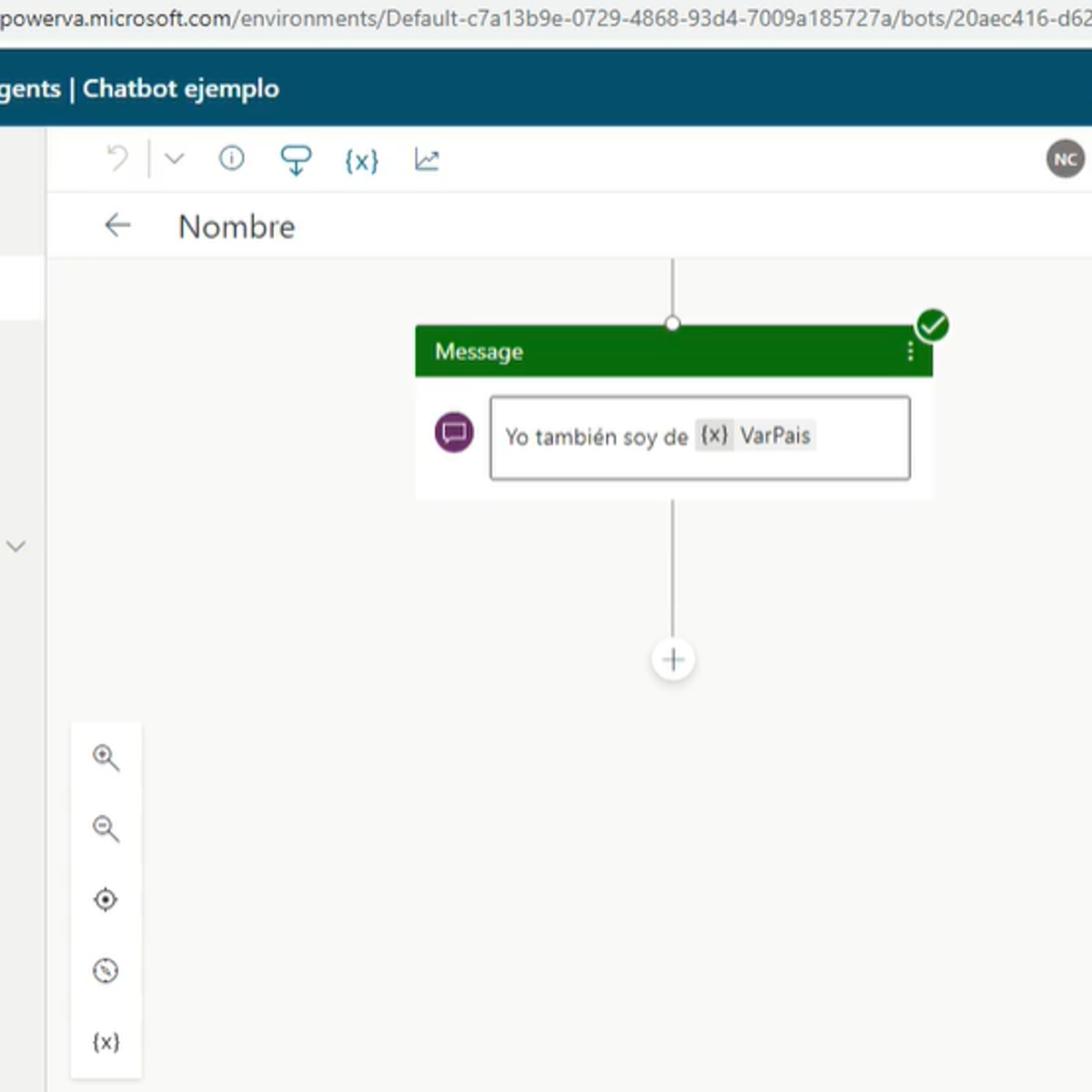
En este proyecto, vamos a explorar y usar un simple chatbot sin programas una sola línea de código con Power Virtual Agents.
What's inside
Syllabus
Good to know
Save this course
Activities
Revise Basic Concepts of Chatbot Development
Show steps
Reviewing basic chatbot development concepts will help you understand the building blocks of Power Virtual Agents.
Browse courses on
Chatbots
Show steps
-
Review the definition and purpose of chatbots.
-
Explore different types of chatbots and their applications.
-
Identify the core components of a chatbot system.
Create a Simple Bot Using Power Virtual Agents
Show steps
Building a simple chatbot will provide hands-on experience with Power Virtual Agents and reinforce your understanding of the concepts.
Show steps
-
Sign up for a Power Virtual Agents account.
-
Create a new chatbot.
-
Design the conversation flow and add content.
Participate in a Chatbot Development Group
Show steps
Engaging with other chatbot developers will provide opportunities to share knowledge, learn from others' experiences, and get feedback on your work.
Show steps
-
Join an online chatbot development community or forum.
-
Attend virtual meetups or workshops related to chatbots.
Four other activities
Expand to see all activities and additional details
Show all seven activities
Practice Chatbot Scripting and Dialogue Writing
Show steps
Practicing chatbot scripting will improve your ability to create engaging and effective conversations for your bots.
Show steps
-
Write sample user queries and responses.
-
Analyze existing chatbot scripts and identify best practices.
Present Your Chatbot Project
Show steps
Presenting your chatbot project will allow you to demonstrate your learning, receive feedback, and identify areas for improvement.
Show steps
-
Prepare a presentation showcasing your chatbot's capabilities.
-
Deliver your presentation to a group of peers or mentors.
-
Gather and incorporate feedback to enhance your bot.
Participate in a Chatbot Development Competition
Show steps
Participating in a competition can motivate you to push your skills to the limit and learn from other talented chatbot developers.
Show steps
-
Find and register for a suitable chatbot development competition.
-
Develop and submit a chatbot that meets the competition requirements.
-
Evaluate the results and identify areas for improvement.
Contribute to Open-Source Chatbot Projects
Show steps
Contributing to open-source chatbot projects allows you to learn from experienced developers, stay up-to-date with the latest technologies, and make a valuable contribution to the community.
Show steps
-
Identify open-source chatbot projects that align with your interests.
-
Review the project documentation and codebase.
-
Make bug fixes or feature enhancements and submit pull requests.
Revise Basic Concepts of Chatbot Development
Show steps
Reviewing basic chatbot development concepts will help you understand the building blocks of Power Virtual Agents.
Browse courses on
Chatbots
Show steps
- Review the definition and purpose of chatbots.
- Explore different types of chatbots and their applications.
- Identify the core components of a chatbot system.
Create a Simple Bot Using Power Virtual Agents
Show steps
Building a simple chatbot will provide hands-on experience with Power Virtual Agents and reinforce your understanding of the concepts.
Show steps
- Sign up for a Power Virtual Agents account.
- Create a new chatbot.
- Design the conversation flow and add content.
Participate in a Chatbot Development Group
Show steps
Engaging with other chatbot developers will provide opportunities to share knowledge, learn from others' experiences, and get feedback on your work.
Show steps
- Join an online chatbot development community or forum.
- Attend virtual meetups or workshops related to chatbots.
Practice Chatbot Scripting and Dialogue Writing
Show steps
Practicing chatbot scripting will improve your ability to create engaging and effective conversations for your bots.
Show steps
- Write sample user queries and responses.
- Analyze existing chatbot scripts and identify best practices.
Present Your Chatbot Project
Show steps
Presenting your chatbot project will allow you to demonstrate your learning, receive feedback, and identify areas for improvement.
Show steps
- Prepare a presentation showcasing your chatbot's capabilities.
- Deliver your presentation to a group of peers or mentors.
- Gather and incorporate feedback to enhance your bot.
Participate in a Chatbot Development Competition
Show steps
Participating in a competition can motivate you to push your skills to the limit and learn from other talented chatbot developers.
Show steps
- Find and register for a suitable chatbot development competition.
- Develop and submit a chatbot that meets the competition requirements.
- Evaluate the results and identify areas for improvement.
Contribute to Open-Source Chatbot Projects
Show steps
Contributing to open-source chatbot projects allows you to learn from experienced developers, stay up-to-date with the latest technologies, and make a valuable contribution to the community.
Show steps
- Identify open-source chatbot projects that align with your interests.
- Review the project documentation and codebase.
- Make bug fixes or feature enhancements and submit pull requests.
Career center
Chatbot Developer
Conversational AI Specialist
Natural Language Processing Engineer
Machine Learning Engineer
Data Scientist
Software Engineer
Web Developer
Computer Programmer
IT Support Specialist
Help Desk Technician
Technical Writer
Project Manager
Business Analyst
Data Analyst
Systems Analyst
Reading list
Share
Similar courses
OpenCourser helps millions of learners each year. People visit us to learn workspace skills, ace their exams, and nurture their curiosity.
Our extensive catalog contains over 50,000 courses and twice as many books. Browse by search, by topic, or even by career interests. We'll match you to the right resources quickly.
Find this site helpful? Tell a friend about us.
We're supported by our community of learners. When you purchase or subscribe to courses and programs or purchase books, we may earn a commission from our partners.
Your purchases help us maintain our catalog and keep our servers humming without ads.
Thank you for supporting OpenCourser.



